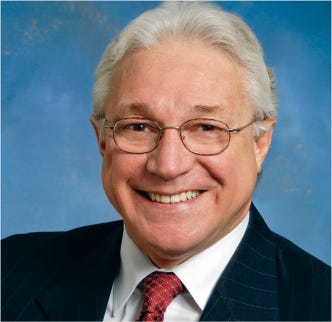A Few Small Steps for Biotech Will Yield Giant Leaps for HumankindA Few Small Steps for Biotech Will Yield Giant Leaps for Humankind
May 1, 2009
Biotechnology’s mission has never been more critical. In a call to action reminiscent of President Kennedy’s challenge to place a man on the moon in the 1960s, President Obama has challenged the scientific community to seek “a cure for cancer in our time.” The challenge is tremendous, but the place to look for such a momentous and meaningful achievement is among the great minds of scientists and inside the research laboratories of biotech companies.
And that is but the tip of the iceberg. This call is just one of the key scientific challenges our industry is addressing. Like the quest to cure devastating diseases, the search for clean, green sources of energy and the move to implement sustainable agriculture are among the most important scientific and technical challenges our society faces. Each day, the biotechnology industry answers these calls through groundbreaking research and innovation. Beyond the complexities of science, however, our industry faces significant barriers to the advances we want — and are being asked — to make.
First, there are economic challenges. Complex biomedical research is in a precarious position everywhere. Due to the global current credit crunch, many small, innovative companies will be unable to fund the rounds of clinical trials and review necessary to bring a new therapy to market. Already some small biotech companies are being forced to shelve potentially life-changing therapies. We should encourage policymakers to further their commitment to finding cures for debilitating diseases by accelerating tax credits and increasing other funding available to small biotech companies, freeing up cash to fund their research.
Biotech also faces policy challenges. In Washington, Congress has begun discussing the Patent Reform Act of 2009, which will determine how the US government values intellectual property and punishes infringement. Researchers worldwide file patent applications here because of our strong, predictable patent protections. Laws that weaken protections and make it easier and cheaper to infringe patents would have a chilling effect on biotech research and development and discourage the investment necessary for developing new therapies and new sources of clean, renewable energy.
Congress is also considering legislation to create a pathway for approval of biosimilars, biotech therapies that are similar to but not the same as innovator biologics. President Obama has made this a priority, and two bills have been introduced in the House of Representatives. The European Union already has guidelines in place differentiating biosimilars and innovator biologics and recognizing the importance of patient safety and the need for continuing innovation.
Any pathway for review and approval of biosimilars by the US FDA must foster continued development of new breakthrough therapies and potential cures for debilitating diseases such as cancer, HIV/AIDS, and Alzheimer’s disease. Such policies must strike the necessary balance to ensure safe and effective biosimilars, promote biomedical innovation, and provide the benefits of competition that currently exist for small-molecule pharmaceuticals. To do less would short-change patients.
These are just some issues to be discussed at the 2009 BIO International Convention in Atlanta this May. A major focus of this year’s convention will be on how biotech companies can sustain their businesses and continue to innovate in this turbulent economic environment. It is crucial that companies not only learn how to survive this turbulence, but also seek outside partnerships and resources. Top researchers, CEOs and other biotechnology executives, policymakers, international dignitaries, and financiers will be meeting to discuss how the industry meets the challenges it currently faces. Last year, 80 high-ranking public officials from 17 different countries attended. This year, 60 countries are expected to be represented at the Convention including Canada, China, India, United Kingdom, Germany, and Australia. The 2009 BIO International Convention is an ideal forum for biotech professionals to network, collaborate, and share ideas.
Topics such as global intellectual property, raising venture capital in an economic slow-down, regulation, and the new FDA will affect our ability to develop new therapies. We also will examine the emergence of personalized medicine to treat diseases and ways to transform and streamline cancer research.
Now is the time to bring together the entire biotech community to work together to find solutions for the challenges we face. We can cure cancer in our time, find alternative energy sources to fuel our planet, and develop agricultural practices that will feed the hungry for generations to come. I invite you to join me in Atlanta at the 2009 BIO International Convention as we tackle some of the challenges that will shape our industry’s future.

You May Also Like






